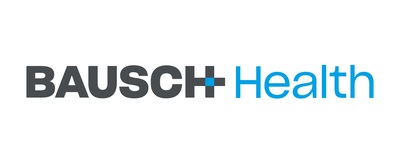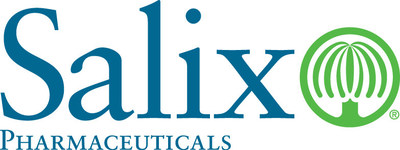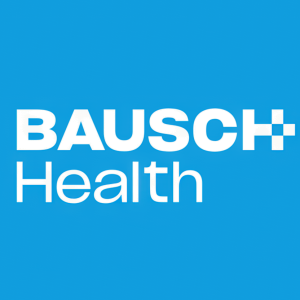Bausch Health's Rifaximin Receives FDA Orphan Designation For Sickle Cell Disease
Bausch Health Companies (NYSE/TSX: BHC) announced on October 29, 2020, that the FDA granted Orphan Drug Designation to rifaximin for treating sickle cell disease, which affects around 100,000 Americans. This designation encourages the development of treatments for rare diseases. Early data indicates rifaximin may reduce vaso-occlusive crises in sickle cell patients. The company plans to start a Phase 2 trial in 2021 to evaluate a novel rifaximin formulation for this patient population.
- FDA granted Orphan Drug Designation to rifaximin for sickle cell disease.
- Potential for rifaximin to reduce vaso-occlusive crises in sickle cell patients.
- Phase 2 trial expected to start in the first half of 2021.
- None.
Insights
Analyzing...
LAVAL, QC, Oct. 29, 2020 /PRNewswire/ -- Bausch Health Companies Inc. (NYSE/TSX: BHC) ("Bausch Health") and its gastroenterology business, Salix Pharmaceuticals ("Salix"), one of the largest specialty pharmaceutical companies in the world committed to the prevention and treatment of gastrointestinal diseases, today announced the U.S. Food and Drug Administration (FDA) has granted Orphan Drug Designation to rifaximin for the treatment of sickle cell disease. The FDA's Orphan Drug Designation program provides orphan status to medicines that are intended for the treatment of a rare disease or condition and incentives for companies to study and further develop medicines to bring forward novel treatments.
Approximately 100,000 Americans have sickle cell disease, which is a group of inherited red blood cell disorders that affects hemoglobin, the protein that carries oxygen through the body. Patients with sickle cell disease have crescent or "sickle" shaped red blood cells that can block blood flow through the body, which can lead to serious problems, including stroke, eye problems, infections and unpredicted episodes of vaso-occlusive crisis, which is described as sharp, intense, stabbing or throbbing pain that can strike nearly anywhere in the body and often requires intravenous pain medication. Sickle cell disease is a lifelong illness, and its only cure is a blood and bone marrow transplant.1
"Early data suggests that rifaximin may be beneficial in reducing vaso-occlusive crisis in patients with sickle cell disease2, and we are currently finalizing trial protocols to further evaluate its potential in this patient population," said Joseph C. Papa, chairman and CEO, Bausch Health. "We expect to start a Phase 2 trial in the first half of 2021 evaluating a novel rifaximin formulation for a potential sickle cell disease treatment, and we are hopeful to be able to bring this investigational oral formulation forward to help sickle cell patients."
About Salix
Salix Pharmaceuticals is one of the largest specialty pharmaceutical companies in the world committed to the prevention and treatment of gastrointestinal diseases. For more than 30 years, Salix has licensed, developed, and marketed innovative products to improve patients' lives and arm health care providers with life-changing solutions for many chronic and debilitating conditions. Salix currently markets its product line to U.S. health care providers through an expanded sales force that focuses on gastroenterology, hepatology, pain specialists and primary care. Salix is headquartered in Bridgewater, New Jersey. For more information about Salix, visit www.Salix.com and connect with us on Twitter and LinkedIn.
About Bausch Health
Bausch Health Companies Inc. (NYSE/TSX: BHC) is a global company whose mission is to improve people's lives with our health care products. We develop, manufacture and market a range of pharmaceutical, medical device and over-the-counter products, primarily in the therapeutic areas of eye health, gastroenterology and dermatology. We are delivering on our commitments as we build an innovative company dedicated to advancing global health. More information can be found at www.bauschhealth.com.
Forward-looking Statements
This news release may contain forward-looking statements, which may generally be identified by the use of the words "anticipates," "expects," "intends," "plans," "should," "could," "would," "may," "believes," "estimates," "potential," "target," or "continue" and variations or similar expressions. These statements are based upon the current expectations and beliefs of management and are subject to certain risks and uncertainties that could cause actual results to differ materially from those described in the forward-looking statements. These risks and uncertainties include, but are not limited to, the risks and uncertainties discussed in the Bausch Health's most recent annual report on Form 10-K and detailed from time to time in Bausch Health's other filings with the U.S. Securities and Exchange Commission and the Canadian Securities Administrators, which factors are incorporated herein by reference. They also include, but are not limited to, risks and uncertainties caused by or relating to the evolving COVID-19 pandemic, and the fear of that pandemic and its potential effects, the severity, duration and future impact of which are highly uncertain and cannot be predicted, and which may have a material adverse impact on Bausch Health, including but not limited to its project development timelines, and costs (which may increase). Readers are cautioned not to place undue reliance on any of these forward-looking statements. These forward-looking statements speak only as of the date hereof. Bausch Health undertakes no obligation to update any of these forward-looking statements to reflect events or circumstances after the date of this news release or to reflect actual outcomes, unless required by law.
1 | Sickle Cell Disease. National Heart, Lung, and Blood Institute. [online] Available at: https://www.nhlbi.nih.gov/health-topics/sickle-cell-disease. Accessed Oct. 29, 2020. | ||||
2 | Lim, Sean H., Dutta, Dibyendu, Moore, Judy. "Rifaximin for sickle cell disease." American Journal of Hematology. 2019 Dec; 94(12): E325-E328. | ||||
Investor Contact: | Media Contacts: | |||
Arthur Shannon | Lainie Keller | |||
(514) 856-3855 | (908) 927-1198 | |||
(877) 281-6642 (toll free) | ||||
Karen Paff | ||||
(908) 927-1190 |
![]() View original content to download multimedia:http://www.prnewswire.com/news-releases/bausch-healths-rifaximin-receives-fda-orphan-designation-for-sickle-cell-disease-301163412.html
View original content to download multimedia:http://www.prnewswire.com/news-releases/bausch-healths-rifaximin-receives-fda-orphan-designation-for-sickle-cell-disease-301163412.html
SOURCE Bausch Health Companies Inc.









